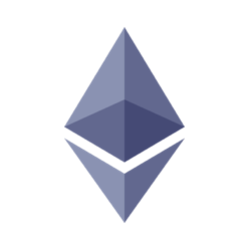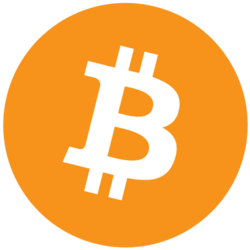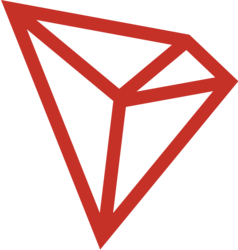The first currency trading commenced in 30 July 2015 , and up to the present day, Ethereum (ETH) is traded on 223 crypto exchanges, including Currency.com, Binance, BitMart, ByBit and others. The maximum trading volume is observed for the trading pair ETH/USDT and reaches 20.9 bln. dollars (77% of the total volume across all exchanges). During the week, the minimum price for Ethereum (ETH) is fixed on Thursday at 1,949.08 dollars. Currently, the token Ethereum is trading in the range of 2,048.69 dollars or 4.73 kopecks for 1 ETH.

ETH Ethereum
Price of Ethereum (ETH)
Exchanges where ETH is traded
| Exchange | Pair | Price | Volume, 24h | ||
|---|---|---|---|---|---|
| 1 |
 Bybit
Bybit
|
ETH/USDT |
$ 2,061.28
₮ 2,062.32
|
$ 208,647,874 | Go |
| 2 |
 Currency.com
Currency.com
|
ETH/USD |
$ 3,333.7
$ 3,333.70
|
$ 1,710,829,511 | Go |
| 3 |
 BitMart
BitMart
|
ETH/USDT |
$ 2,051.09
₮ 2,052.08
|
$ 1,201,413,063 | Go |
| 4 |
 CoinUp.io
CoinUp.io
|
ETH/USDT |
$ 2,046.57
₮ 2,047.56
|
$ 1,114,894,053 | Go |
| 5 |
 BTCC
BTCC
|
ETH/USDT |
$ 2,057.04
₮ 2,058.07
|
$ 1,059,043,784 | Go |
| 6 |
 Coinstore
Coinstore
|
ETH/USDT |
$ 2,054.88
₮ 2,056.27
|
$ 996,846,671 | Go |
| 7 |
 Bybit
Bybit
|
ETH/USDT |
$ 4,736.32
₮ 4,737.77
|
$ 995,025,438 | Go |
| 8 |
 Binance
Binance
|
ETH/USDT |
$ 2,052.17
₮ 2,052.79
|
$ 889,843,443 | Go |
| 9 |
 Coinsbit
Coinsbit
|
ETH/USDT |
$ 3,348.11
₮ 3,344.20
|
$ 791,065,885 | Go |
| 10 |
 Tapbit
Tapbit
|
ETH/USDT |
$ 2,056.66
₮ 2,058.10
|
$ 784,379,821 | Go |
Calculator ETH
1 ETH = 2,048.69 USD
What is Ethereum?
Ethereum is a global, open-source platform for decentralized applications. In other words, it is a decentralized blockchain platform that enables developers to build and deploy smart contracts and applications without central authority control. Unlike Bitcoin, which primarily functions as digital currency, Ethereum operates as a programmable global computer where developers can create any type of decentralized service.
The platform hosts over $14 billion in DeFi applications with hundreds of thousands of active users across financial protocols, NFT marketplaces, and gaming platforms. Its transition to Proof of Stake in September 2022 reduced energy consumption by over 99%, addressing environmental concerns while strengthening network security.
The network operates through thousands of independent validator nodes that process transactions and execute smart contracts on the Ethereum Virtual Machine. Smart contracts are self-executing programs written in Solidity that automatically carry out agreements when conditions are met, eliminating intermediaries like banks or brokers.
Validators stake ETH as collateral to propose and validate blocks, earning rewards for honest participation while facing penalties for malicious behavior. The EIP-1559 upgrade introduced a dynamic base fee mechanism that burns ETH with each transaction, creating deflationary pressure during high network activity when more ETH is burned than issued to validators.
Vitalik Buterin proposed Ethereum in 2013, but seven co-founders helped build it, including Gavin Wood who created Solidity and the EVM technical specification, and Joseph Lubin who founded ConsenSys. The project launched in July 2015 after raising over $18 million through crowdfunding, quickly becoming the largest blockchain developer community. Major milestones include the 2020 Beacon Chain launch, the 2021 London hard fork implementing fee burning, and the 2022 Merge to Proof of Stake.
Ether (ETH) serves multiple functions: paying transaction fees (gas), staking to secure the network and earn 3-5% annual yields, serving as collateral in DeFi protocols, and purchasing NFTs and digital assets. The asset is increasingly adopted by traditional institutions, with publicly traded companies adding ETH to corporate treasuries to generate staking yields while maintaining blockchain exposure, and in 2024, the SEC approved spot Ethereum ETFs, allowing traditional investors to gain exposure through conventional brokerage accounts.
Ethereum's roadmap focuses on dramatically increasing transaction capacity to over 100,000 per second, reducing confirmation times, and enhancing decentralization while maintaining security against future threats like quantum computing.
Official websites and links for Ethereum
There are currently about 5 official links to Ethereum websites and social media:
- Website - ethereum.org
- Twitter - twitter.com/ethereum
- Reddit - reddit.com/r/ethereum
- Facebook - facebook.com
- GitHub - github.com/ethereum/go-ethereum
Ethereum: How does it work
Ethereum stands out as the second most popular cryptocurrency, distinguished primarily by its ability to rapidly create smart contracts. While Bitcoin serves as a convenient means of storing and transferring funds, Ethereum expands the spectrum of financial actions significantly.
Smart Contracts: Redefining Digital Agreements
Smart contracts, integral to Ethereum, represent pieces of code embedded within the blockchain. These contracts outline conditions for execution, automatically triggering transactions upon fulfillment. Unlike traditional legal agreements where the judiciary system ensures compliance, smart contracts operate digitally within Ethereum's system, guaranteeing execution through computer programs and a rigorous mathematical framework.
Illustrating Smart Contracts
Consider the scenario of Vasya raising funds on Kickstarter for a "Back to the Future" hoverboard project. Through traditional crowdfunding, contributors send money, trusting Kickstarter to either transfer funds to the project creators upon meeting the goal or return funds if the goal isn't met. This reliance on a third-party platform introduces trust concerns.
With Ethereum's smart contracts, Vasya can code the conditions directly. When the conditions are met, the contract executes, either transferring funds to Vasya or returning them to the contributors. This automation eliminates the need for intermediaries and enhances trust within transactions.
Project Essentials
Project Essence: Ethereum serves as a decentralized platform enabling the creation and execution of smart contracts, revolutionizing digital agreements and financial transactions.
Mission: Ethereum aims to decentralize traditional financial systems, offering a trustless and transparent platform for executing various financial actions through smart contracts.
Token Role: The native cryptocurrency, Ether (ETH), fuels transactions and smart contract executions within the Ethereum network.
Tokenomics: Ether operates as both a digital currency and a utility token, essential for interacting with decentralized applications (dApps) and executing smart contracts on the Ethereum network.
Team: Founded by Vitalik Buterin in 2013, Ethereum boasts a diverse team of developers, researchers, and contributors dedicated to advancing blockchain technology and decentralized finance (DeFi).
Investors/Partners: Ethereum has garnered support from a wide array of investors, including both individual backers and institutional players, along with strategic partnerships with various blockchain projects and tech firms.
IDO (Initial DEX Offering): Ethereum's launch involved a token sale conducted through an Initial Coin Offering (ICO), which subsequently evolved into decentralized fundraising mechanisms like Initial DEX Offerings (IDOs) facilitated through decentralized exchanges (DEXs).
By embracing Ethereum's capabilities, individuals and businesses can access a new paradigm of financial autonomy and efficiency, empowered by smart contracts and decentralized protocols.









